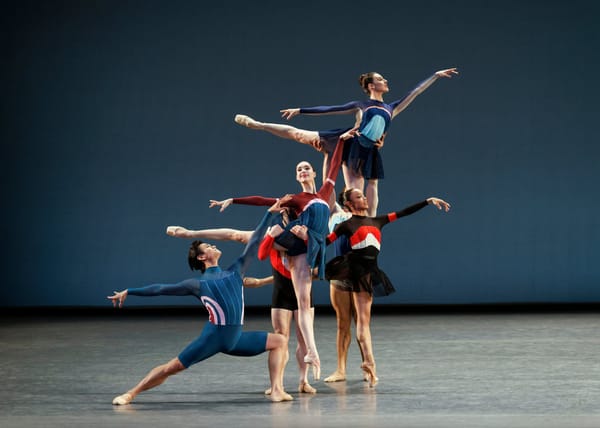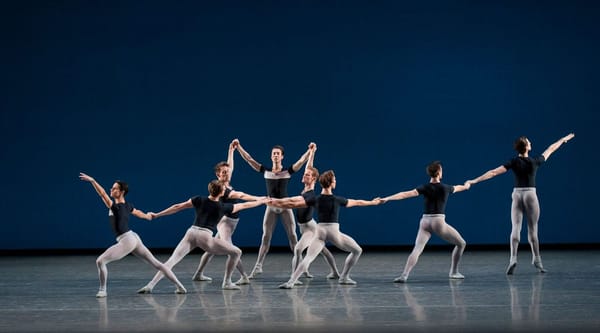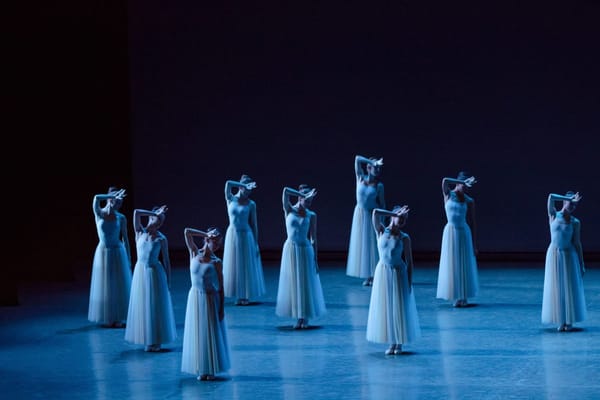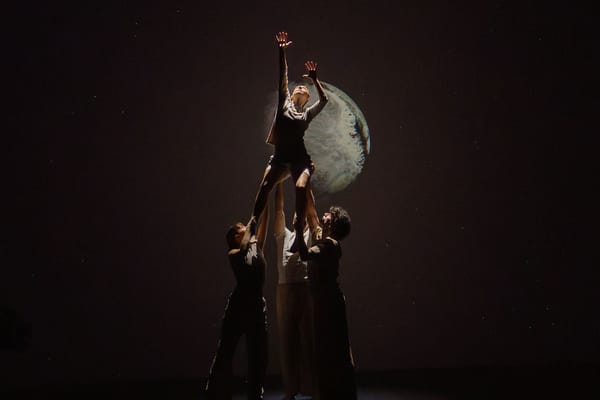“Onegin,” By the Book
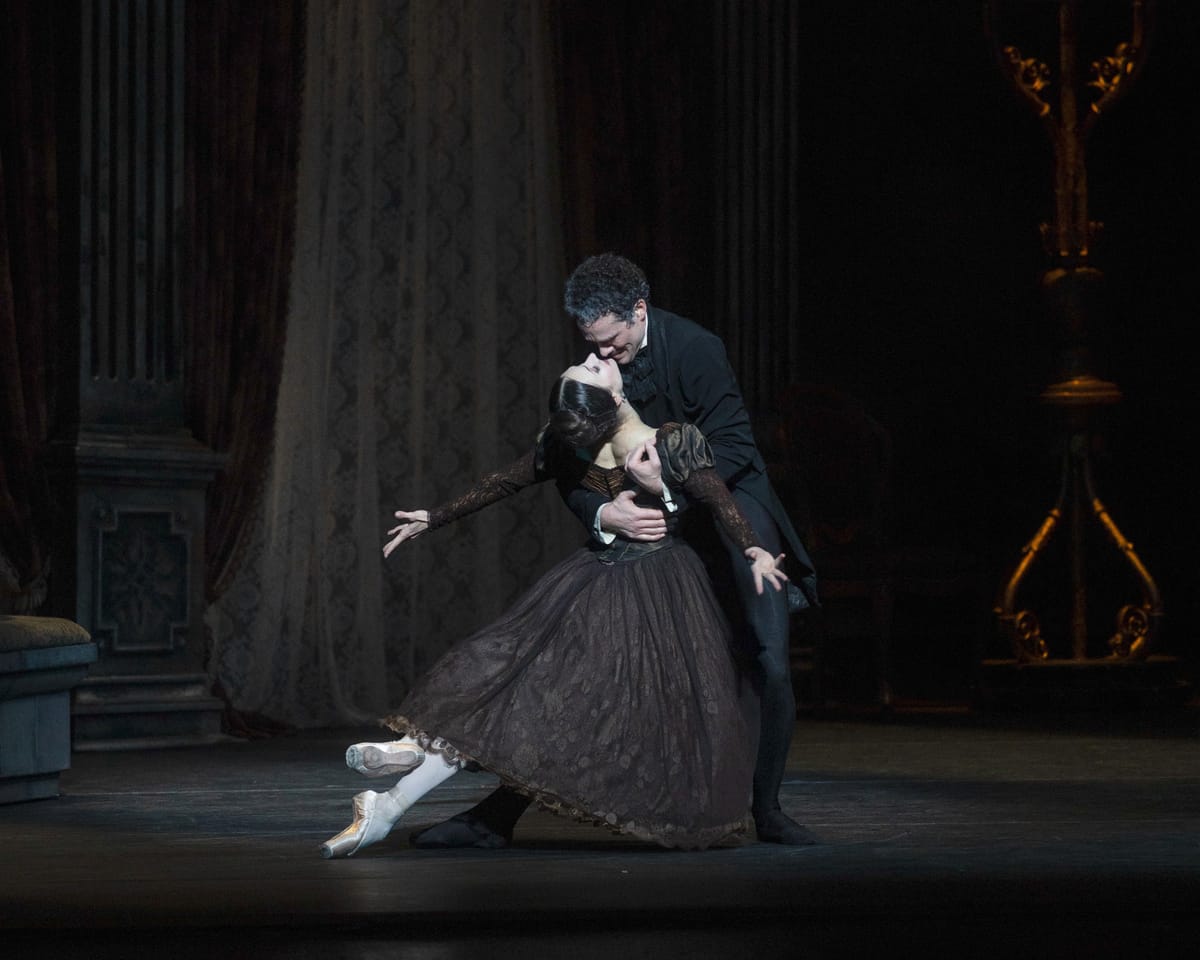
“Onegin”
American Ballet Theatre
Metropolitan Opera House
New York, NY
June 18 and June 19 (matinee), 2024
American Ballet Theatre boldly opened its 2024 season at the Metropolitan Opera House with John Cranko’s “Onegin.” With somewhat last-minute casting changes, the opening night honors fell on Christine Shevchenko and Cory Stearns as Tatiana and Onegin respectively, who danced with dedication; though it was the next day’s matinee performers, also a substitute cast, Chloe Misseldine and Thomas Forster, who brought the depth of Alexander Pushkin’s iconic characters to life.
Despite largely being overlooked in the West, Pushkin’s verse-novel “Eugene Onegin” is perhaps Russian literature’s most iconic work. The story of its titular character, the dandy bored by high society and excesses who ultimately comes to his reckoning, is both instructive and entertaining. But effectively translating a story told in verse, with the many character details and the multi-layered Russian cultural backdrop, into dance is no easy task, particularly in a staging that focuses so heavily on dramatic interpretation over reliance on physical steps, and set to Pyotr Tchaikovsky excerpts not intended to depict this narrative by the composer himself.
On opening night, few character portrayals were textually accurate, with Shevchenko looking like the only dancer who likely read and internalized Pushkin’s work. Her Tatiana was endlessly wondering, dreaming of love, and fully enraptured and moved by her encounter with Onegin. One saw it frequently, in her shy smiles, overjoyed eyes, and girlish nervousness in the abbreviated accents to her movements. This innocent but thoughtful character came through remarkably in the opening scenes where Shevchenko did little beyond sitting elegantly lost in a book, but with scene stealing presence. The few weaknesses came in the dancing passages, not in the steps, but in the interpretation. This was particularly true during the mirror pas de deux with Stearns, where both dancers’ movements had too much punctuation and interrupted the continuity of the choreographic narration, even as their faces were aglow with joy.
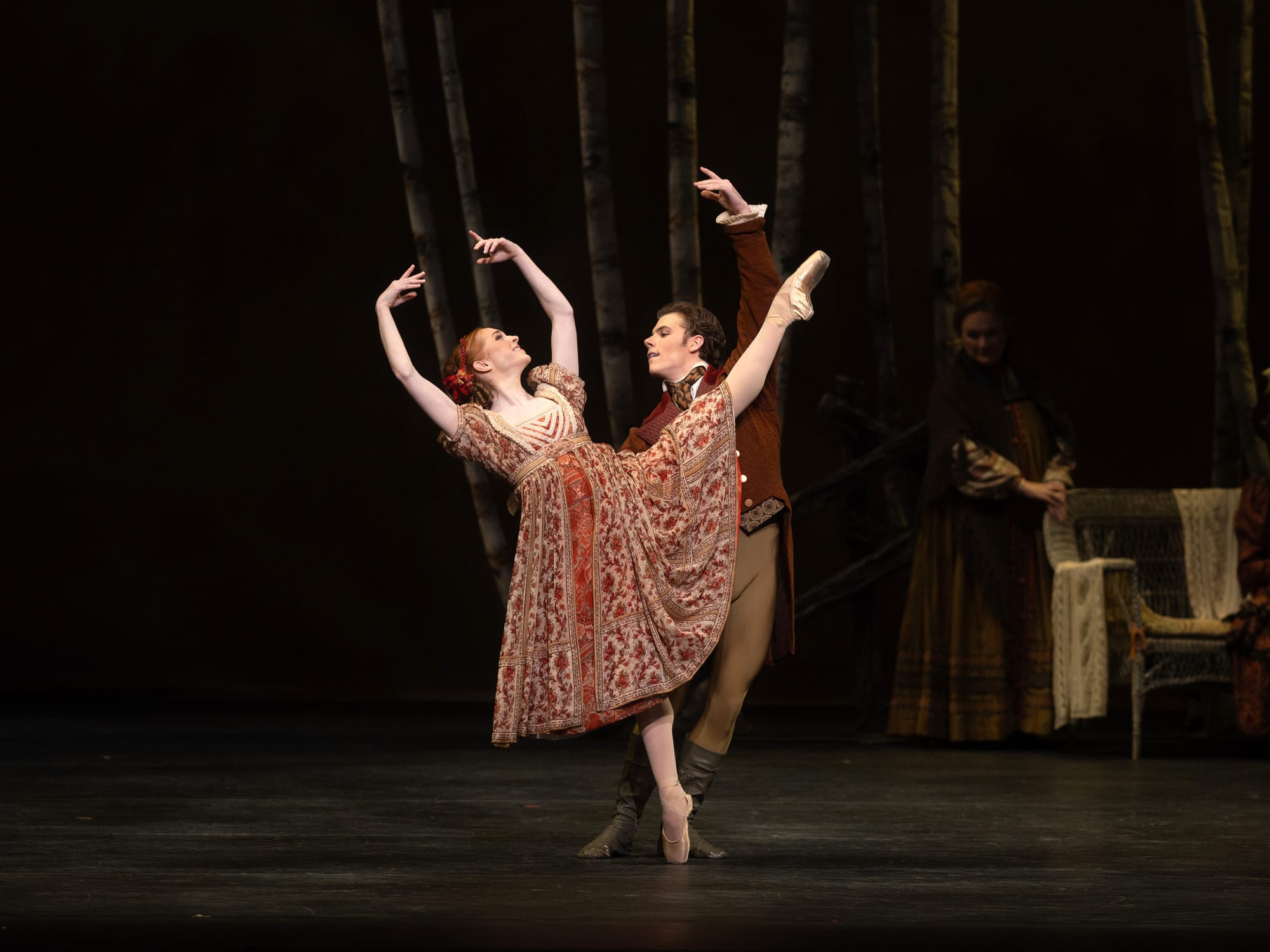
Stearns’s Onegin from his very first entrance was not the bored and spoiled cad, but a pensive, tortured soul. It was unclear why he looked so troubled, neither the ballet program nor what was happening on stage, let alone the novel, could lend an explanation. Still, the dancing was solid, and the role he was playing was interesting, even if it did not resemble the titular character of the book itself that much. In the other couple, as Lensky, Jake Roxander was charming, but seemingly on a mission to find a wife in his first scenes, rather than visiting his bride, as the novel dictates. The Lensky solo before the duel was Roxander’s best moment, and he tried to do a lot with the choreography, pulling every bit of meaning out of the truncated sentences that Cranko replaced Pushkin’s succinct but loaded verses with in every lingering arabesque after turns, every pose. His Olga, Zimmi Coker, gave a joyful but too naïve of a portrayal, and sometimes overdid the playfulness of her character.
The company turned the page with the second cast. Misseldine’s debut as Tatiana and Catherine Hurlin’s Olga were more demure in the opening scenes, with period and place-appropriate manners and simplicity, and that worked in their favor. Misseldine’s Tatiana was an enigma, slowly revealing herself as the ballet progressed. That treatment suggested that her character was hiding a lot of emotion behind her eyes, revealing passionate glimmers of it only when the story advanced to Tatiana’s bedroom and the scene where she was writing that infamous confessional letter.
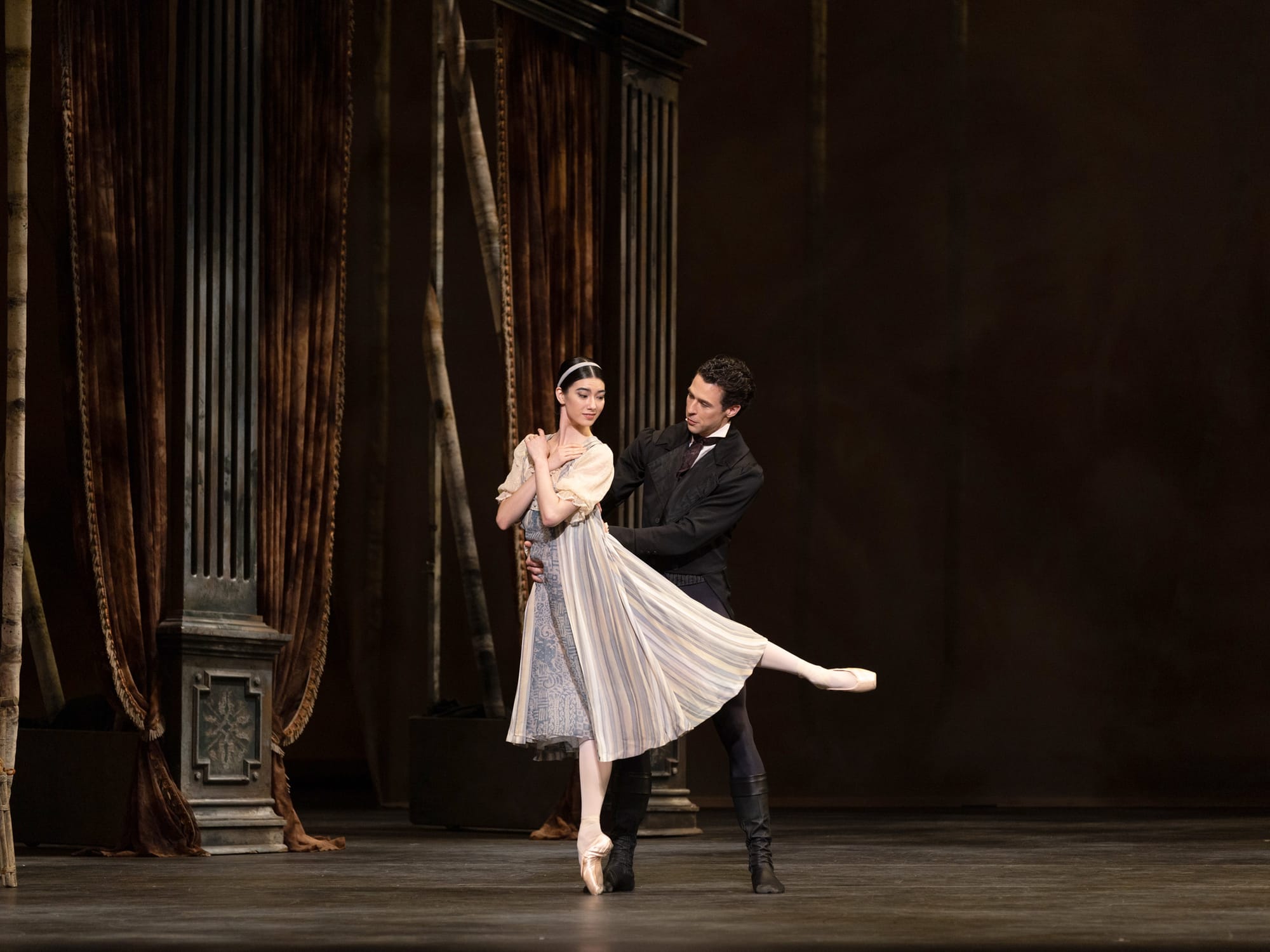
As her Onegin, Thomas Forster was very much the man escaping all the “tedium” of his character’s life attending Moscow’s theaters and salons. His quest was entertainment, and as in the book, he sought it everywhere, including in the peasants whom he lightly judged and scoffed at. Even his dance with Tatiana was an act of politeness, born of not interest but the continued quest to cure his boredom. But drama came for him, and quickly, with its first climactic moment in the scene where Onegin confronts Tatiana about the letter. True to the text, preserving her honor with discretion, his dancing was a lecture about the incongruity of her actions, without real anger in his gestures. Misseldine maintained her reserved approach, and as Forster tore her letter into little pieces, she stood in heartbroken stillness, letting the bits of paper fall through her hands. Her acting here was exemplary – it looked like pieces of her character’s heart were falling shattered with the paper. Later, in her solo, as she would stop and look at him mid-dance, this Tatiana was once again composed, so politely hiding her heartbreak to fit decorum, that it was strange her dancing irritated this Onegin.
Hurlin’s Olga and Aran Bell as Lensky were just as fitting and impressive in their roles. Like Pushkin’s Olga, Hurlin was not overly jubilant, just happy and coquettish, and Bell as Lensky was a man in love, seeing his beloved. Their first duet was far more lyrical than the opening night’s cast’s, Hurlin’s lean away from the leg in a la second moving further to the side, and in a more fluid manner that lilted into the next moves of the partnering. When it came time for Lensky’s monologue before the duel, he danced it duty-bound, earnest and accepting of his character’s fate, even if laced with shades of “how did we get here?” sentiment.
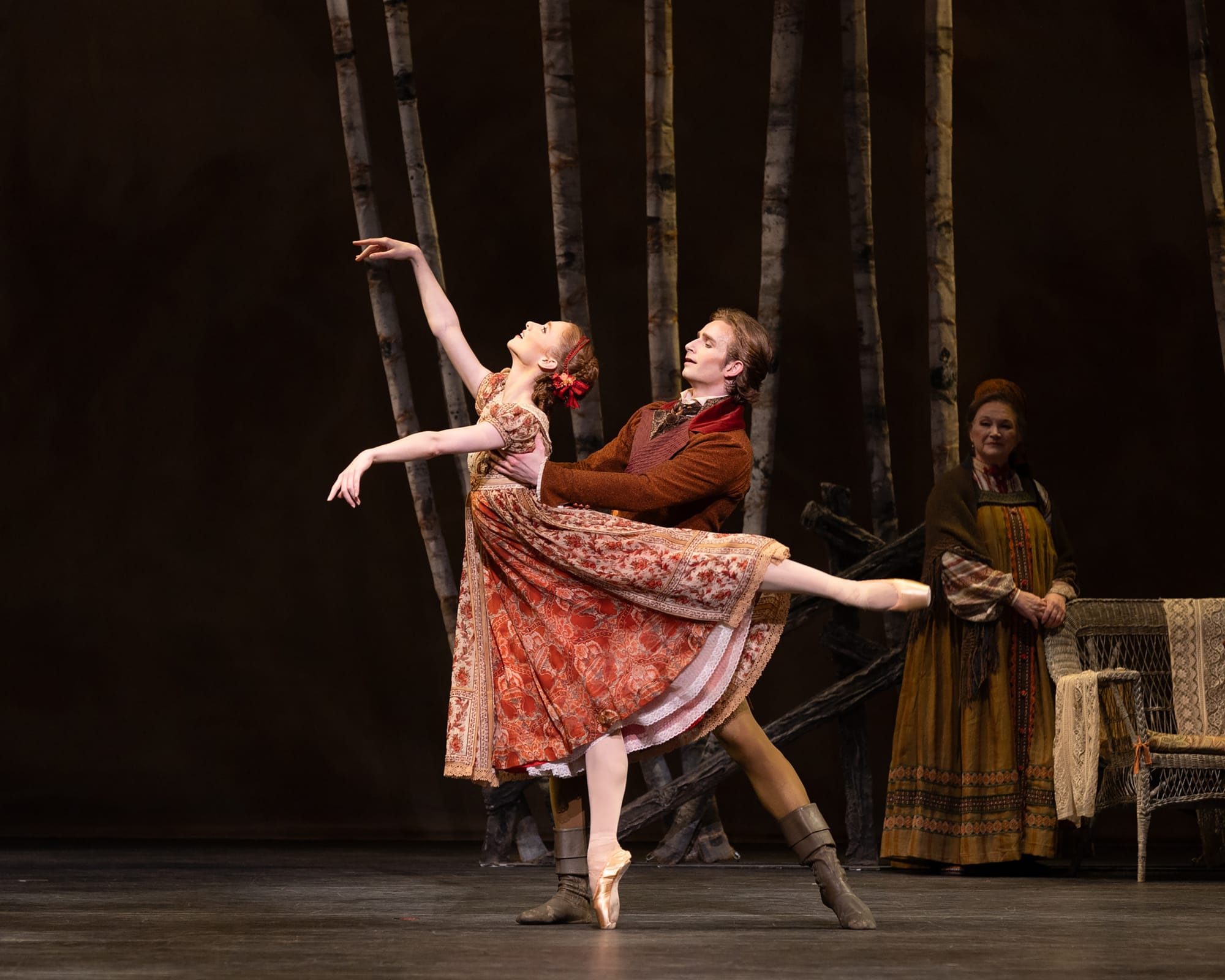
The ballet’s third act is a karmic boomerang for the lead characters, with Tatiana married and Onegin looking lost, the errors of his salad days now behind him and apparent. Both Stearns and Forster were convincing as the distraught character, with Forster having an advantage with his shock and gnawing regret, perhaps because that tortured mood was relatively new in his treatment of the whole role to this point. Both of Tatianas acted with serene confidence, and had endearing and trusting relationships with their Prince Gremins, although, particularly in the scene where Tatiana asks her husband not to leave her for the evening, of different sorts. Shevchenko leaned on Roman Zhurbin more as a partner and a friend, while Misseldine’s exchange with very dignified Jarod Curley had more softness and view of him as a protector. Both the duet and the post-ball exchange were excellently danced by all as prelude to the ballet’s crescendo – its final Onegin-Tatiana scene.
That dance has all the markings, musically and choreographically, of a piercing performance, and the writing it is based on is one of the novel’s most compelling sections. While the program notes helpfully reproduced Tatiana’s letter, they did not give the audience a glimpse of what Onegin wrote to her, or what begins the last conversation the characters have:
‘Enough; please get up now. I must
Explain myself to you sincerely.
Onegin, do you recall the time
When in the garden of my home
I listened humbly as so clearly
You spoke the lesson I should learn?
Well, now today it is my turn.
Tatiana to Onegin in Chapter Eight, Section XLII
(Translation by D.M. Thomas)
Her turn ends up being both biting and decisive. Of the Tatianas, Misseldine showed more of all the pain of many years that we find buried the character’s expression during the exchange. And there were layers to it, which only made it richer. When Forster wrapped his arms around her mid-duet, she threw her head back almost in pleasure of having a long longed-for love finally be hers, but quickly caught herself, with complete horror flashing across her face while pulling away. As she commanded Forster to leave, this was a Tatiana fully in control of the situation, but also, importantly, herself.
In all, as is so often the case with story ballets, so much of the overall impression depended on the dancers’ treatment of the roles. For the entire performance, the stage curtain bears the writing “Eugene Onegin,” but looking closely, it is written in felt tip pen, not quill. That seems fitting for this production, and why particularly in this ballet adherence to the text and faithfully presenting its characters is critical.
copyright © 2024 by Marianne Adams
